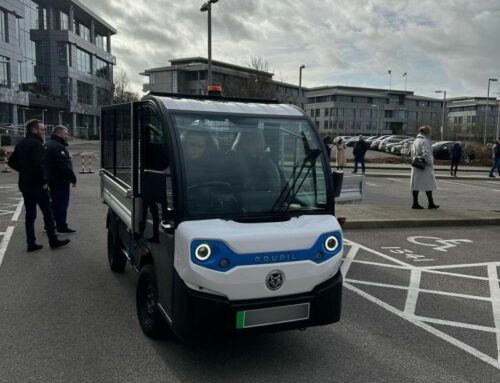
Any driver knows a van has to work harder when it’s loaded, but knowing what that costs might make you think twice about carrying unnecessary weight
CARRYING unnecessary weight around in our vans increases fuel consumption, as most users will know.
And most business van drivers and managers would probably accept that most drivers, especially in trades vans like builders and plumbers, carry around any amount of unnecessary kit and materials.
A car-derived van like a VW Caddy will use 26% more fuel fully loaded than it does when empty.
But loading and unloading is a hassle and without a clear view of how much money we’re wasting, well ‘life’s too short’.
Now Cenex* has done some research to put numbers behind the vague claims.
The research compared fuel consumption in empty and fully loaded panel vans and car-derived vans on typical urban and rural driving routes.
Under urban driving conditions, Cenex found that a typical car-derived van, such as a Volkswagen Caddy, would use around 26% less fuel when empty than when fully loaded. Even with a weight reduction of 150kg the fuel saving was 5%.
As for larger panel vans like the Peugeot Boxer, the difference in fuel consumption was up to 33%, with 3% fuel savings achievable with a weight reduction of 150kg.

On bigger panel vans like a Peugeot Boxer fuel consumption is up to a third higher when they’re fully loaded
What would this mean to you? OK, you’re not likely to drive round with a full load all the time, but think about the cash you could save.
Typically a van like a Caddy will have a 60 litre tank – which at £1.40 a litre will cost £84 to fill. A 26% saving in consumption would be like a 26% cut in your fill-up cost – that’s nearly £22!
More realistic, if you cut your unnecessary load by 150kg you’ll still save close to £5 on your fill-up. If you run a small fleet of vans, you know how fast that’ll mount up.
On a national scale, The Energy Saving Trust has estimated that if half the van drivers in the UK lightened their loads by 75kg – equivalent to three bags of cement or an empty industrial gas cylinder – the total saving would be around £50 million on fuel each year. This would also result in around 100,000 fewer tonnes of carbon dioxide emissions being released.
What can you do about it?
How many of your drivers treat their van as a mobile storeroom for rarely needed equipment or parts?
By educating drivers on being aware of necessary and unnecessary objects in their vehicles, fleet operators can save a substantial amount of money across the year, as well as improving working efficiency with less time hunting through the mess to find what they need. Drivers should prepare for each job, ensuring that any tools, and especially equipment and materials, they are carrying are the correct ones.
Reducing the amount of additional weight in your vans will not only improve their fuel economy, but could reveal that the vans are bigger than necessary, with underutilised space.
As a result, you could consider downsizing and opting for smaller, more economical business vans, better suit your operational needs.
*Who’s Cenex?
Cenex was established in 2005 by the then Department of Trade and Industry as a centre of excellence for low carbon and fuel cell technology. It’s known for its ‘real world’ research on driver behaviour and counts some major fleet operators among its clients. The work cited here was on behalf of the Energy Saving Trust.






Leave A Comment